Medical professionals and healthcare heroes across the country are going above and beyond in the fight against coronavirus. And although doctors and nurses receive the majority of praise for their life-saving efforts, they only represent 20 percent of all essential health workers, and an even smaller percentage of essential workers.
Millions of other frontline workers and health care personnel receive much less compensation and recognition for their sacrifices. Here are a few unsung heroes and helpers putting their own lives on the line to help others during the pandemic:
Francesca Cepeda
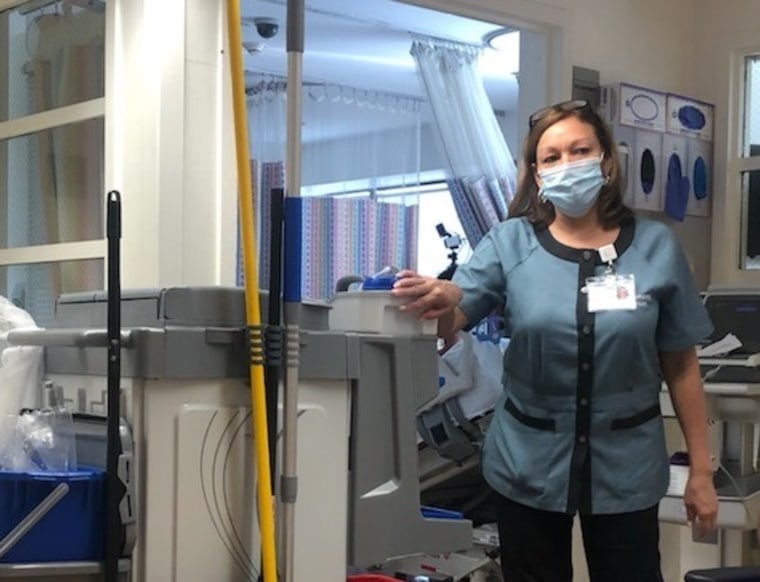
Francesca Cepeda has worked as an environmental service worker at Long Island Jewish Forest Hills Hospital in Queens, New York, for the last 14 years. And while she’s seen doctors and nurses receive a great deal of praise over the past several months, she knows they're not the only health care team members being put at risk.
“At some point we’re all taking care of the patients,” 52-year-old Cepeda said in an interview with USA Today. Although environmental service workers – the technical term for hospital custodians – are used to operating in the shadows, they often work the same 12-hour shifts as doctors and nurses, but for significantly less pay and sometimes without the same PPE given to health professionals. Environmental service workers can be just as integral as doctors – helping hospital-wide infection control and often connecting with or translating for patients who don’t speak English well.
As soon as I go in the room, they calm down. I love it. I tell them, ‘I am here to help you.' – Francesca Cepeda
Dawn Hannah
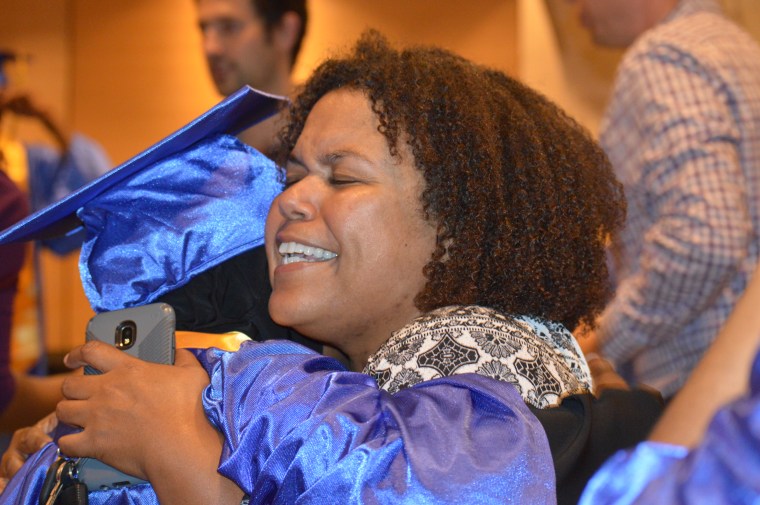
Dawn Hannah works as the director of education and student services at Community Learning Center (CLC), a provider of free GED and workforce readiness classes, and partner in the Digital Navigator Initiative.
As a Philadelphia native born and raised in the city’s “Black Bottom” by a 19-year-old single mom, Hannah is no stranger to the economic and racial disparities that families in her community face. Having held positions in teaching and education leadership at a number of Philadelphia nonprofit organizations, Hannah has dedicated her professional life to improving the academic success and life chances of at-risk youth and striving adult learners.
Hannah’s work and the services offered by CLC are particularly crucial now when many schools and community centers are unable to reopen in-person due to lack of resources.
Access to quality education, to information and information technology opened doors for me that remain shut for so many others. I see my work as opening doors for children like me and families like mine – Dawn Hannah
April O'Quinn
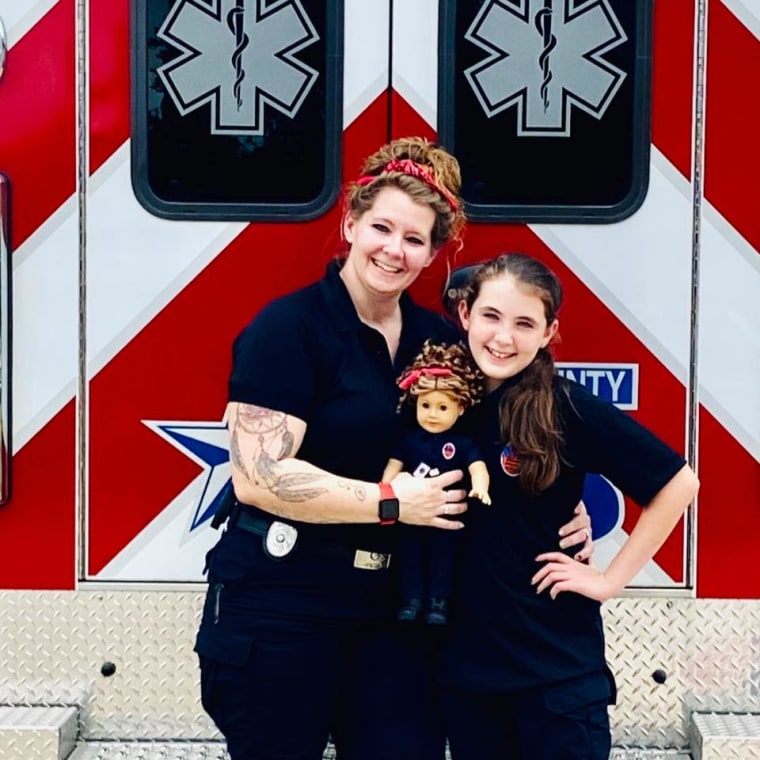
Earlier this year, American Girl Doll launched its ‘Heroes with Heart’ contest, asking kids across the country to nominate an essential worker who has made a difference in their lives and put their own health at risk to provide safety during the pandemic. The five winners received a one-of-a-kind, custom-made American Girl doll and outfit in their hero's likeness to gift the honoree, along with a $200 American Girl gift card for the nominator.
One of the selected heroes is Virginia-based paramedic, April O’Quinn, who has more than 15 years of experience on the job. “It’s a huge, huge honor to represent females in EMS," she said in an interview with CNN, noting that people often forget the large contributions that EMS provide in the medical world.
While on the job, O’Quinn contracted COVID-19 and, after recovering, immediately returned to work to care for others. O’Quinn’s struggle and perseverance is exactly why her niece, Lacey nominated her. "When she was finally healed and released back to work, she didn't hesitate for one moment," Lacey told the American Doll website.
We are just as strong as the men are. We can do this job just as well as everyone else. Don't let anyone hold you back because you are a girl. – April O’Quinn
Ekta Prakash
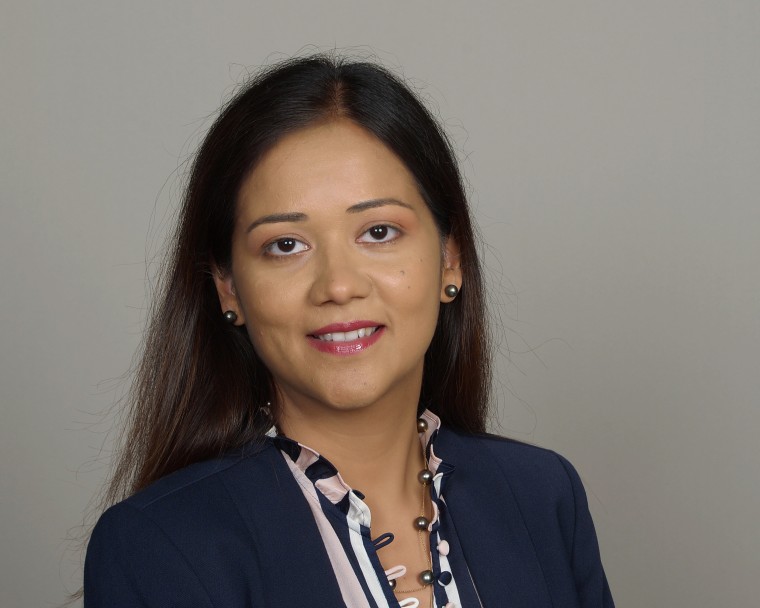
Since 2012 Ekta Prakash has worked as the executive director of CAPI USA, a non-profit food pantry, or food shelf, that ensures immigrant communities in Minneapolis and its northern suburbs can access culturally-specific food, such as jasmine rice, vermicelli noodles and fish sauce.
When the coronavirus pandemic began to spread in the U.S., Prakash had to quickly switch gears to be able to serve the area's most vulnerable immigrant populations. The new mission of the center, which was formerly called the Center for Asians and Pacific Islanders but changed its name to reflect its broader client base, is now making sure it can provide those same provisions as well as keep up with growing demands related to the pandemic.
“I think it's important that we keep doing what we're doing every day,” Prakash told NBC Asian America. “And I feel like the moment we stop doing it, I think it's going to be really bad and disastrous.”
When Prakash moved to the United States from India in 2000, she was only able to find work in retail because she didn’t have enough experience. After earning her second master’s degree and working her way up the ladder from receptionist to program manager at another non-profit, she joined CAPI USA as a program manager in 2007. Despite the hardships that come with being a nonprofit organization operating during a pandemic, Prakash’s staff and community keep her motivated to continue these essential efforts.
If I don't empower the people I'm working with, then I'm not a leader. – Ekta Prakash
Sabrina Hopps
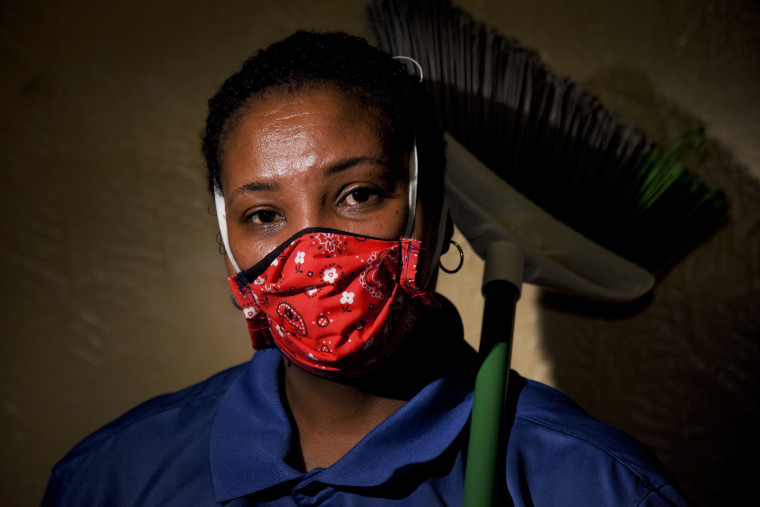
Sabrina Hopps is a 46-year-old housekeeping aide at a critical care facility in Washington, D.C. Although she wears protective gear, she worries about the risk her job poses to her and her family’s health as she cleans rooms of residents exposed to COVID-19.
Hopps has to be especially cautious, because she has asthma and lives with three generations of relatives. Due to her low income, she cannot afford to socially distance in the apartment she shares with her daughter, granddaughter and son (who is a cancer survivor and also an asthmatic). Although Hopps has to implement additional steps to protecting those around her by wearing extra protective clothing and equipment, she understands the gravity of these extremely difficult times and remains dedicated to her work.
I'm nervous, but I know this is my fight, so I'm going to continue until I can't anymore. – Sabrina Hopps